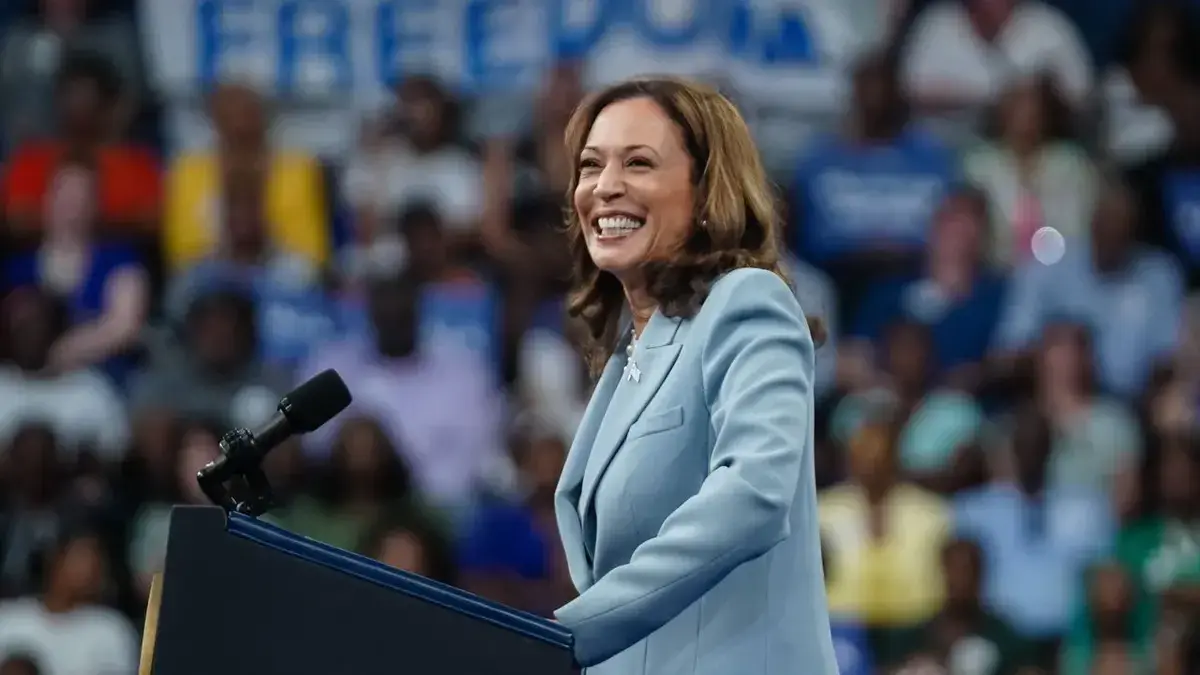
Harris Targets High Food and Housing Costs as Inflation Dominates Campaign Discourse
- foodfightadmin
- August 16, 2024
- Federal, Hunger In America
- adlps, ads pages
- 0 Comments
Vice President Kamala Harris is intensifying her focus on the issues of high food and housing prices as she gears up for a major economic policy speech in North Carolina. On Friday, Harris’s campaign unveiled plans to push for a federal ban on price gouging at grocery stores, alongside broader initiatives to cut costs in key areas such as housing. These proposals are designed to address one of the most significant concerns among voters—persistently high inflation.
Although year-over-year inflation has recently fallen to its lowest level in over three years, food prices remain stubbornly high, sitting 21% above where they were three years ago. This surge has been a central point of criticism from Republican presidential nominee Donald Trump, who has made inflation a key issue in his campaign against the Biden administration.
Harris’s economic proposals also tackle the cost of housing, another significant driver of inflation. If elected, she plans to leverage federal resources to promote the construction of 3 million new housing units, pass legislation aimed at slowing rent increases, and provide $25,000 in down-payment assistance for first-time homebuyers. The vice president’s housing strategy also includes establishing a tax credit for homebuilders who construct starter homes, doubling a $20 billion innovation fund for housing construction initially established under President Joe Biden’s administration, and cracking down on data-sharing and price-setting tools used by landlords.
Harris is positioning her initiatives as a continuation and expansion of the legislative and economic efforts undertaken during her tenure alongside President Biden. This alignment with Biden’s record was on full display earlier this week when Harris and Biden jointly celebrated their administration’s success in lowering prescription drug prices. Speaking at an event in Maryland, they highlighted the impact of drug price negotiations made possible by the 2022 Inflation Reduction Act, a bill passed thanks to Harris’s tie-breaking vote in the Senate. “The tiebreaking vote of Kamala,” Biden remarked to the crowd, “made that possible.” He went on to express his confidence in Harris’s leadership, declaring, “She’s gonna make one helluva president.”
As part of her broader campaign strategy, Harris is also addressing concerns that she might distance herself from Biden’s economic record. When asked about this on Thursday, Biden firmly dismissed the idea, stating, “She’s not going to.”
The economic battle between Harris and Trump is shaping up to be a central theme of the 2024 election. According to a recent Associated Press-NORC Center for Public Affairs Research poll, 45% of Americans believe Trump is better positioned to handle the economy, compared to 38% who favor Harris. However, the margin is relatively narrow, and about 1 in 10 voters trust neither candidate to manage economic issues effectively.
Trump has been vocal in his criticism of Harris’s economic proposals, particularly her push for a federal ban on price gouging, which he characterized as “communist price controls” during a speech at his Bedminster, New Jersey golf club. Surrounded by grocery store items meant to highlight the rising cost of food, Trump warned that Harris’s proposals would lead to shortages, hunger, and even higher inflation.
Harris’s housing plan also seeks to address longstanding concerns about the role of corporate landlords in driving up housing costs. Her proposal includes removing a tax incentive that has encouraged investment firms to purchase large swaths of the country’s housing stock, and it aims to draw a stark contrast with Trump, who was sued by the Justice Department for housing discrimination five decades ago.
Despite recent cooling in inflation, consumer confidence surveys indicate that high prices remain a persistent source of frustration, particularly among lower-income Americans. Overall prices have risen about 21% since the pandemic began, although average incomes have increased slightly more, allowing for continued consumer spending. Yet, the gloomy economic outlook persists, with beef prices having increased nearly 33% and chicken prices up 31% over the past four and a half years. Pork prices have also jumped 21%, driven by pandemic-related supply disruptions and ongoing consolidation in the meat processing industry.
The Biden administration has accused corporate consolidation of exacerbating price hikes, particularly in the meat industry, where four large companies control 55% to 85% of the market for beef, chicken, and pork. These companies, including Tyson Foods and JBS, have faced lawsuits accusing them of price-fixing, resulting in hundreds of millions of dollars in settlements, though they have not admitted wrongdoing.
Economists are divided on the causes of recent inflation, with some, like University of Massachusetts economist Isabella Weber, coining the term “seller’s inflation” or “greedflation” to describe how large corporations may have exploited pandemic-era disruptions to raise prices. While Harris’s proposals to ban price gouging might resonate with voters, some experts argue that the impact of such measures would be limited. Grocery prices have risen just 1.1% in the past year, aligning with pre-pandemic trends, and industry representatives dispute the notion that consolidation is to blame for high prices.
Kansas State University agricultural economist Glynn Tonsor noted that the cost of raising animals and processing meat has increased, contributing to higher prices. “Yes, consumers are seeing higher prices, but it doesn’t necessarily mean somebody is gouging them,” Tonsor said. Julie Anna Potts, President and CEO of the Meat Institute trade group, echoed this sentiment, arguing that Harris’s idea would not solve the underlying issues driving inflation. “Consumers have been impacted by high prices due to inflation on everything from services to rent to automobiles, not just at the grocery store,” Potts said. “A federal ban on price gouging does not address the real causes of inflation.”
As the 2024 campaign progresses, Harris’s focus on inflation and economic issues will likely remain a pivotal aspect of her strategy. With voters deeply concerned about the rising cost of living, her proposals to tackle price gouging, housing costs, and economic inequality will be central to her appeal as she seeks to distinguish herself from Trump and solidify her economic platform.








